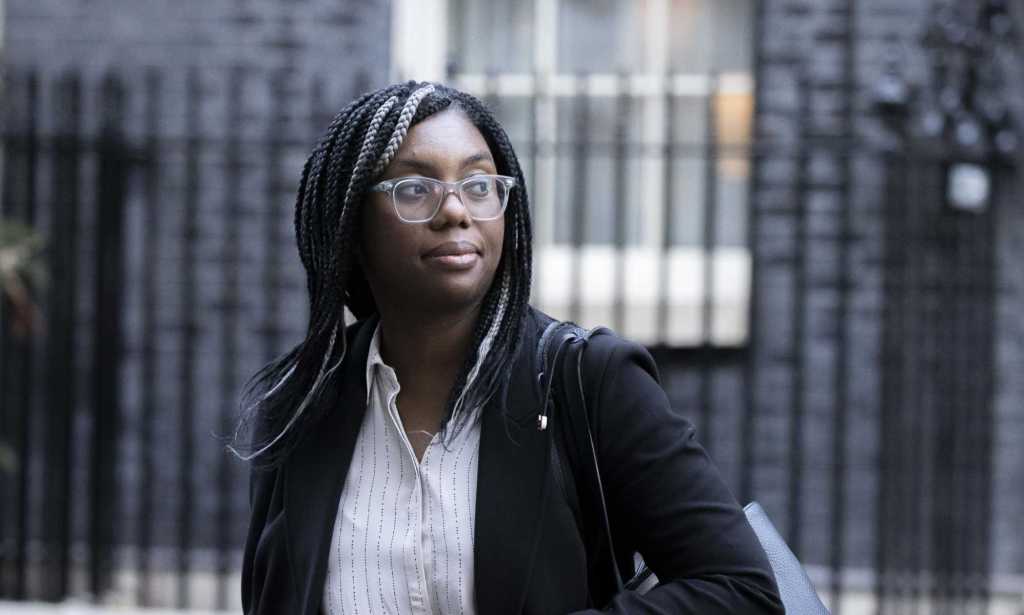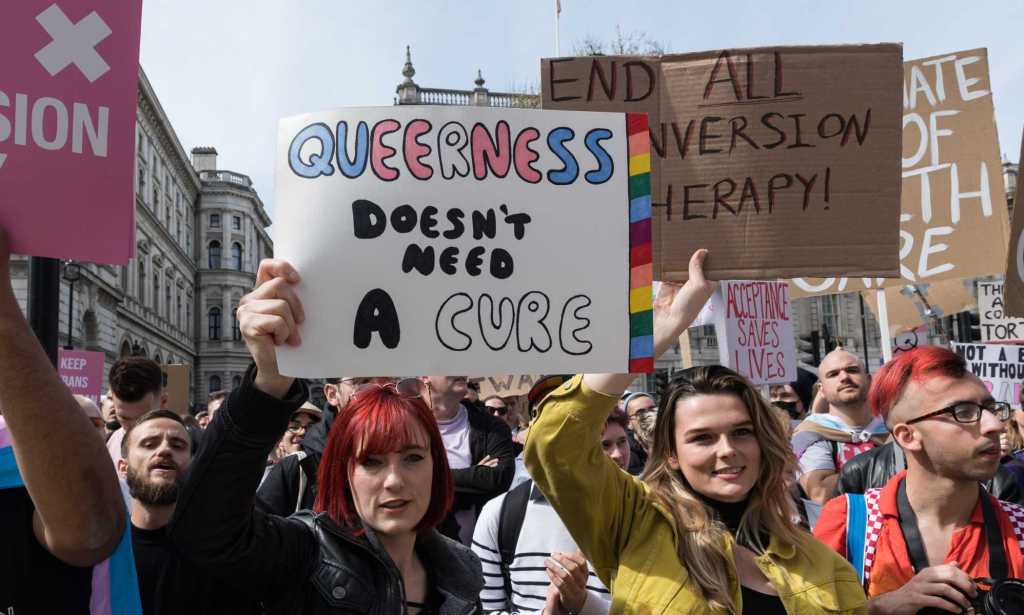Equalities minister Kemi Badenoch refuses to say when conversion therapy ban will land

Kemi Badenoch has refused to say when a conversion therapy ban will be brought in (Wiktor Szymanowicz/Anadolu Agency via Getty Images)
Women and equalities minister Kemi Badenoch avoided giving a date for when legislation banning conversion therapy will be introduced in parliament, but suggested it should be before the next general election.
Speaking in front of the Women and Equalities Select Committee on Wednesday (1 March), the Conservative minister addressed questions about the government’s long-promised ban on so-called ‘conversion therapy’ as well as other issues which come under her portfolio of responsibility.
Conversion practices, as they are also known, are acts of trying to change a person’s gender or sexuality. This is something all major UK medical organisation agree is not possible.
Theresa May first promised a ban in 2018. After Boris Johnson delayed and then staged a double U-turn on a legislative ban, Rishi Sunak’s government announced in January that a draft bill would be forthcoming.

Badenoch told the committee in Westminster she is “pleased” with the progress of the draft and said it is “coming” in “due course”.
She said that the bill should enter parliament before the next election, as that is something the government has already “committed” to – although she refused to name a specific date.
“We’ve stated multiple times that we do intend to bring in a legislative ban on conversion practices, and we call it conversion practices, because it’s not therapy,” Badenoch said.
She addressed the decision to submit the plans for pre-legislative scrutiny, something which has been criticised considering the government has conducted lengthy research and consultation on the topic.
“We have decided that we’re going down the pre legislative scrutiny route,” Badenoch said.
“That was a matter of debate on whether having that would prolong the process but looking at how contentious the issue has been in terms of how it was discussed, and also looking at the strength of feeling across both Houses of Parliament and on both sides of the argument. We felt that just having the PLS process would make the bill a lot more rigorous,” she told the room.
Conversion therapy ban must be ‘robust’, says Kemi Badenoch
The minister confirmed that the bill is “currently being drafted” but said she does not want to provide a specific date which “will only disappoint”.
“It has to be as good as it possibly can be,” she explained to the committee, “and cover all the elements that we want covered before we publish”.
“We can’t continue litigating this over and over again and I think that that’s what they can have confidence in, that we’re doing this properly,” she continued.
Badenoch was asked to elaborate on previous comments about unresolved issues preventing the publication of a draft bill.
She said “a lot of the evidence” received from clinicians, as well as “some of what we’ve seen from the Cass review” into care for young trans people. She said this was why a bill would refer to conversion practices rather than therapy.

A ban has been a long time coming
An initial ban on conversion therapy was announced under Thersea May’s government in 2018, only for the successive government under Boris Johnson to dither on putting legislation into place.
In March 2022, Johnson dropped plans for a legislative ban on conversion therapy but then quickly made a U-turn after facing huge public backlash for the decision. He announced however that he would exclude trans people from the measure.
In January, the government once more promised to bring in legislation – inclusive of trans people – which would see conversion therapy outlawed but did not set a date for when such a law would be published.

